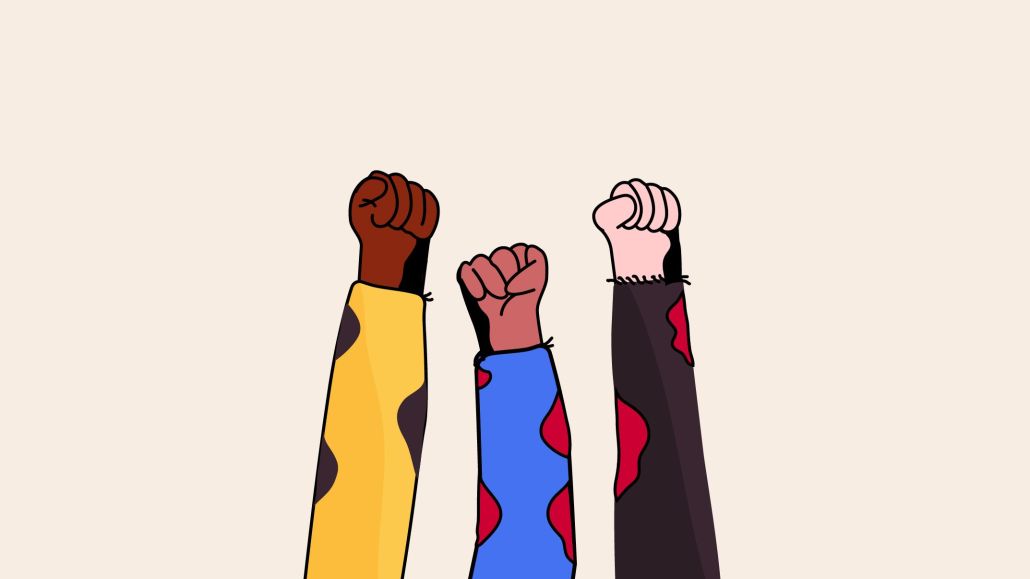Save 50% on a 3-month Digiday+ membership. Ends Dec 5.
Evil Geniuses is using its DEI-friendly profile to win business from brand partners like Bud Light, HP and others

In the wake of recent scandals such as G2 Esports’ sexism controversy and FaZe Clan’s homophobia blow-up, esports orgs that have prioritized messaging of diversity and equity in their branding are beginning to reap the financial rewards.
Evil Geniuses’ DEI-focused branding allows it to serve as a more palatable partner for brands hoping to dodge controversy while partnering with esports orgs. EG’s current group of partners includes prominent non-endemic brands such as Monster Energy, Bud Light and Hewlett Packard Enterprise.
In contrast to G2 Esports, for example, which reportedly lost its Valorant partnership with Riot Games due to its CEO’s association with right-wing influencer Andrew Tate, Evil Geniuses received Riot’s blessing, becoming the last confirmed team to secure a partnership slot in the game’s Americas league prior to Riot’s official announcement.
“Riot loves [Evil Geniuses CEO] Nicole [LaPointe Jameson]; what she stands for and what she wants to do within the industry,” said the organization’s vp of operations and studio John Jung. “I don’t know that us versus G2 is necessarily the comparison, but I think all of us here at EG — I don’t know if I would really feel safe at any other org, because I know in my bones that something like what happened at G2 would never happen here.”
EG executives said they have found that their DEI-imbued reputation has also made it easier for the org to recruit influencers and team members from marginalized groups, such as Joshseki, a streamer recently signed by the org, who happens to be a gay Asian man and has developed a reputation for his humorous roasts of misogynists in the gaming community.
“When they enter into negotiations or conversations with creators of color, of different genders than cis white men, there’s an inherent understanding of what they’re about that is wildly beneficial,” said esports journalist Jacob Wolf. “If you’re a successful woman or person of color or trans person who’s influential in the gaming space, and an opportunity comes from Evil Geniuses vs many of the others, you’re going to take it a little more seriously up front.”
It helps that LaPointe Jameson, EG’s CEO, is one of the few Black female executives to hold a leading role in esports. While many esports orgs these days are trying to align themselves with DEI concepts for financial gain — even the edgy FaZe Clan had a diversity-focused partnership with McDonald’s last year — LaPointe Jameson’s consistent work to make Evil Geniuses a diverse brand and accepting workplace legitimizes Evil Geniuses’ claim to that mission.
Evil Geniuses’ commitment to diversity is reflected by both its hiring practices and its actions. The company signed partnerships with the advocacy groups Women in Gaming and Games for Change last year, and its Valorant partnership application website specifically highlights its investment in female creators. The org has produced podcasts centering LGBTQ perspectives in esports and has worked with YouGov to author a report about sources of toxicity within the gaming community.
“We applaud teams for their DEI efforts and celebrate their achievements in making esports a more inclusive space overall,” a Valorant Champions Tour Americas spokesperson told Digiday when reached for comment. “We’re looking forward to seeing and supporting their growth in 2023.”
In addition to LaPointe Jameson, Evil Geniuses has also hired women and individuals from other marginalized groups to a number of executive positions, most recently hiring Antonia Bonello over from Buzzfeed as its first global creative director.
“I would say that EG is one of the only esports teams in the entire industry that is led by a female and Black CEO,” said Rod Breslau, a longtime esports journalist and industry observer. “So of all the teams that are trying to do things, EG, and then previously FlyQuest, whose CEO did leave recently for Cloud9 — those organizations that have put women at the head of the table, it means something more from them.”
Evil Geniuses is not the only esports organization to center messaging of diversity and equity in its branding, although it is perhaps the most prominent org to do so. Other examples of organizations that have elevated women to leadership roles include the aforementioned FlyQuest, where Tricia Sugita served as CEO until June 2022, and XSET, which employs Erin Ashley Simon as a co-owner and chief culture officer.
As the more controversial or unsavory side of esports rears its head, organizations that focus on DEI in a genuine way will continue to benefit from others’ missteps.
“We have just been quietly always this organization, and now it’s sort of coming to a point where brands really want to step into that light more,” said Avelina Daum, a vp and global head of marketing at EG. “And I think, for us, we naturally do it even without talking about it, so it becomes a very easy conversation, from a partnership angle.”
More in Marketing

Ulta, Best Buy and Adidas dominate AI holiday shopping mentions
The brands that are seeing the biggest boost from this shift in consumer behavior are some of the biggest retailers.

U.K. retailer Boots leads brand efforts to invest in ad creative’s data layer
For media dollars to make an impact, brands need ad creative that actually hits. More CMOs are investing in pre- and post-flight measurement.
Ad position: web_bfu



